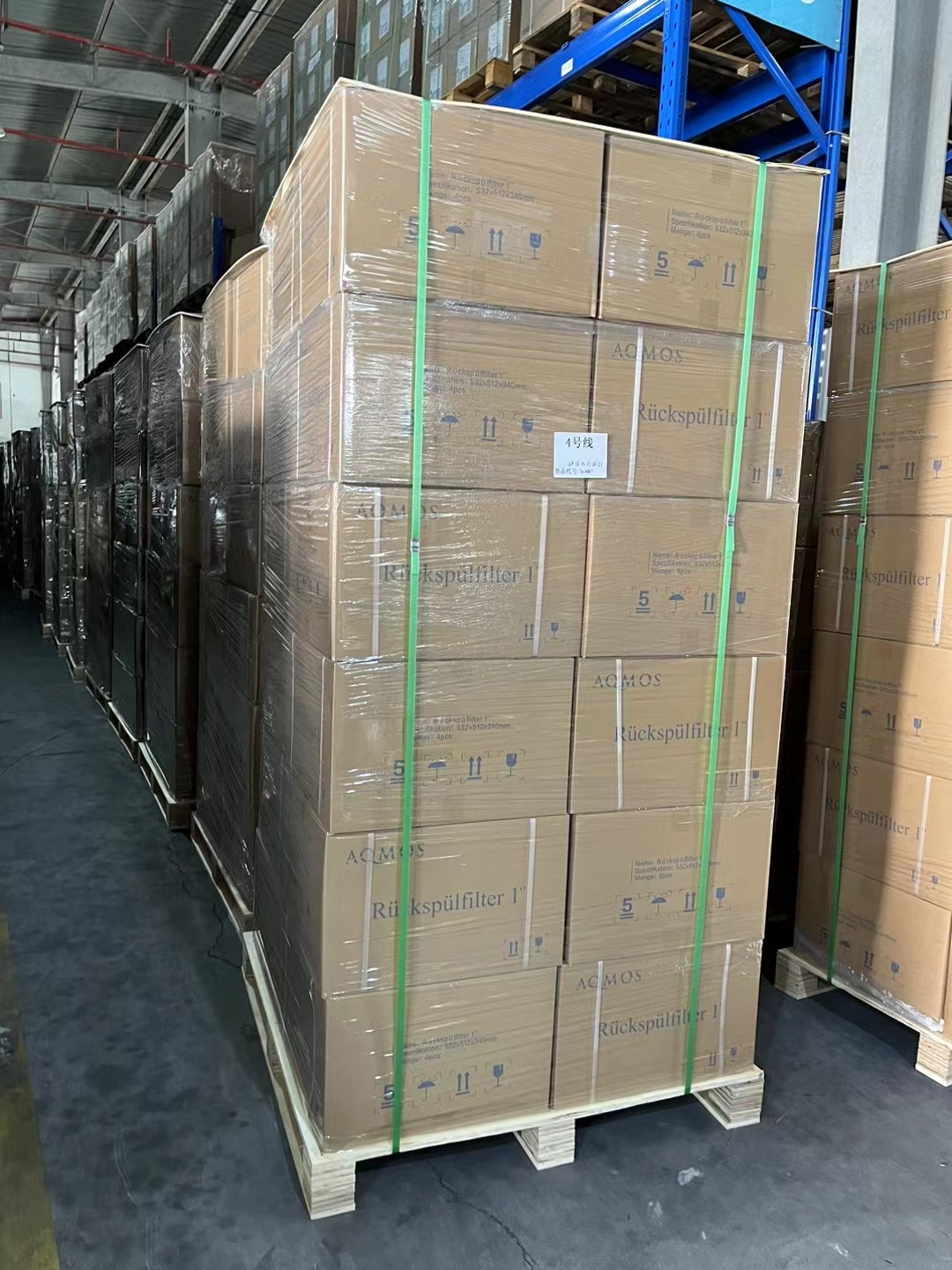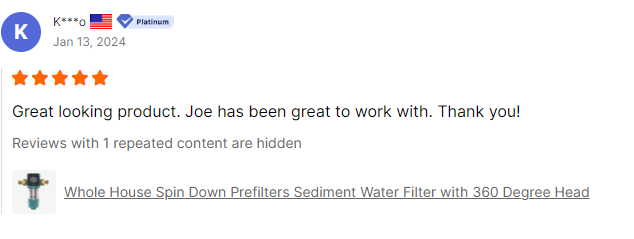HANGZHOU BEISHUN BRISKSPRING ENVIRONMENTAL TECHNOLOGY CO., LTD. |
|
Verified Suppliers
|
|
What is a Salt-Free Water Conditioner ?
A Salt-Free Water Conditioner is a device designed to manage hard water issues without the use of salt or chemicals, which are typically employed
in traditional water softeners. Instead of removing hard water
minerals such as calcium and magnesium through ion exchange,
salt-free water conditioners neutralize these minerals so they
remain in the water but lose their ability to cause scale buildup
on fixtures, pipes, and appliances.


What is the difference between A Water Conditioner and A Water Softener?
Water Conditioner
Purpose: Designed to alter the characteristics of hard water
minerals to prevent scale buildup. They do not remove minerals from
the water but rather change their form so they cannot adhere to
surfaces.
Process: Utilizes various technologies such as BriskSpring SAAS ion polarization technology, Template Assisted Crystallization (TAC), magnetic, or
electronic methods to neutralize minerals like calcium and
magnesium. These technologies change the physical structure of the
minerals without altering the water's chemical composition.
Benefits: Maintenance-free with no need for salt or chemicals,
retains beneficial minerals in the water, and environmentally
friendly.
Ideal for: Those looking to prevent scale without removing
essential minerals from the water, and who are concerned about
sodium intake or environmental impact.
Water Softener
Purpose: Specifically designed to remove calcium and magnesium ions
from hard water through a process called ion exchange, effectively
softening the water.
Process: Water softeners replace hard minerals with sodium (salt)
or potassium ions, thereby removing the hardness from the water.
Benefits: Eliminates scale buildup, reduces soap scum, and can
extend the life of appliances and plumbing by reducing the hard
water's wear and tear.
Ideal for: Households or facilities dealing with significant hard
water issues and willing to maintain the system with regular salt
replenishment and occasional maintenance.
Key Differences
Mineral Removal: Water softeners physically remove hard minerals
from the water, whereas water conditioners neutralize the minerals
to prevent scaling without removing them.
Maintenance and Cost: Water softeners require ongoing maintenance
and salt replenishment, potentially increasing operational costs.
Water conditioners typically offer a lower maintenance solution.
Health and Environmental Impact: Water softeners add sodium to the
water, which may be a concern for individuals on low-sodium diets.
Water conditioners are more eco-friendly, as they do not discharge
salty wastewater into the environment.

Why Do People Tend to Buy Salt Free Water Conditioners Instead of Water Softeners Nowadays?
The increasing preference for salt-free water conditioners over traditional water softeners in many countries can be attributed to several key factors that align with contemporary concerns about health, environmental sustainability, and maintenance ease.
Here are the primary reasons for this shift:
Health Concerns
Sodium Intake: Traditional water softeners replace hard minerals
with sodium (salt), which can increase the sodium content in the
water supply. This is a significant concern for individuals on
low-sodium diets or those with certain health conditions. Salt-free
conditioners, on the other hand, do not add sodium to the water,
making them a healthier choice for many households.
Environmental Considerations
Eco-Friendly: Salt-based softeners generate brine waste during the
regeneration process, which can have detrimental effects on the
environment, particularly on soil composition and local water
bodies. Salt-free conditioners do not produce such waste, making
them a more environmentally friendly option.

Water Conservation: Traditional softeners use significant amounts
of water during the regeneration cycle, contributing to water
wastage. Salt-free systems typically require no additional water
beyond the normal flow through the system, thus conserving water.
Maintenance and Cost
Lower Maintenance: Salt-free water conditioners generally require
less maintenance than their salt-based counterparts, which need
regular salt replenishment and system cleaning to prevent clogging
and inefficiencies.
Cost-Effectiveness: The reduced maintenance requirements, absence
of a need for salt purchases, and avoidance of the costs associated
with handling wastewater and extra water usage make salt-free
conditioners a more cost-effective option over time.

Legislative Restrictions
Regulatory Factors: In response to environmental concerns, some
regions have introduced regulations that limit or ban the use of
salt-based water softeners. This has naturally led to an increased
interest in and demand for salt-free water conditioning systems.
Preservation of Beneficial Minerals
Retaining Minerals: Unlike softeners that remove beneficial calcium
and magnesium minerals, salt-free conditioners neutralize these
minerals without removing them from the water. This process
preserves the essential minerals in drinking water, which can be an
important health consideration for many people.

Adaptability and Space
Space Efficiency: Salt-free systems often have a smaller footprint
than traditional softeners, making them suitable for homes with
limited space.
Prevailing Types of Salt-Free Water Conditioner/Descaler in the Market
1. SAAS ion polarization, like BriskSpring Hard Water Conditioner for Home Desclaing
The SAAS copper-based catalytic material is a specially developed catalytic alloy material. This alloy selects various metals with different electronegativities, such as Cu-Zn-Ni, and through a complex high-temperature melting process, forms a uniformly oriented, neatly arranged columnar crystal structure internally. The catalytic material exhibits a strong ability to release free electrons to the fluid medium and to polarize the fluid medium.

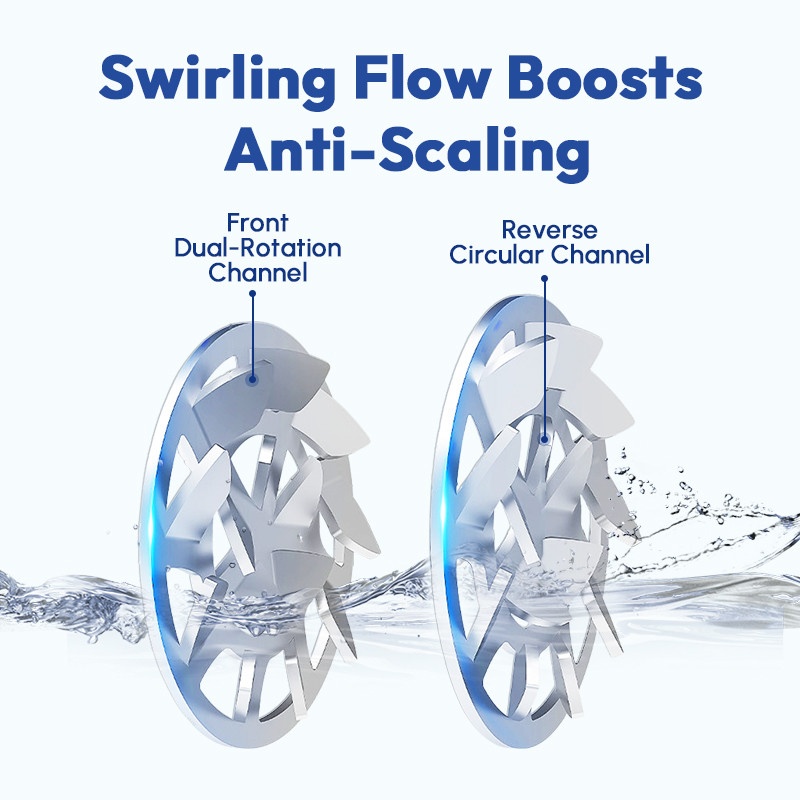

2. Template Assisted Crystallization (TAC)
Overview
TAC technology operates on the principle of transforming dissolved calcium and magnesium minerals in water into harmless, microscopic crystals that won't adhere to pipes, appliances, or fixtures, thereby preventing scale buildup effectively.
Operational Mechanism
The core of TAC technology lies in its unique treatment media. This media contains catalytically active sites that facilitate the nucleation process – the creation of micro-crystals of calcium carbonate from the dissolved minerals in the water. As water flows through a TAC system, these micro-crystals form and grow to a size that can easily be rinsed away by the water flow, preventing them from attaching to surfaces. This process is entirely physical and does not alter the chemical composition of the water, preserving its beneficial minerals while eliminating the negative effects of scale.

3. Electromagnetic descaler , like TURBO Hard Water Conditioner
Overview
Utilizing electromagnetic fields to alter the crystalline structure
of mineral ions in hard water, these systems prevent the formation
of scale without the need for chemicals, salt, or alterations to
the water's mineral composition.
Principle of Operation
The core functionality of electromagnetic water descalers lies in
their ability to generate a varying electromagnetic field around
water-carrying pipes. When hard water passes through this field,
the electromagnetic waves alter the physical properties of the
calcium and magnesium ions that cause hardness, preventing them
from forming hard scale deposits. Instead, these minerals remain
suspended in the water in a non-adherent form, allowing them to
flow freely through the system and subsequently be drained away.
This process does not remove the minerals from the water, thus
retaining its health benefits while effectively mitigating the
issues associated with scale.

4. Magnetic descaler, like Scalesweeper Electronic Hard Water Conditioner
Overview
Magnetic water descalers present a cutting-edge approach to water
treatment, focusing on the prevention of scale formation caused by
hard water minerals such as calcium and magnesium. These devices
utilize magnetic fields to modify the physical properties of
mineral ions in the water, thereby inhibiting the formation of hard
scale deposits on surfaces like pipes, appliances, and boilers.
Principle of Operation
At the heart of a magnetic water descaler is a series of magnets or
an electromagnetic coil that creates a powerful magnetic field
around water pipes. As water passes through this magnetic field,
the magnetic forces alter the electromagnetic properties of calcium
and magnesium ions. This change prevents the ions from
crystallizing and clinging to surfaces as scale. Instead, these
minerals continue to flow with the water, reducing the risk of
scale buildup without altering the water's chemical composition.
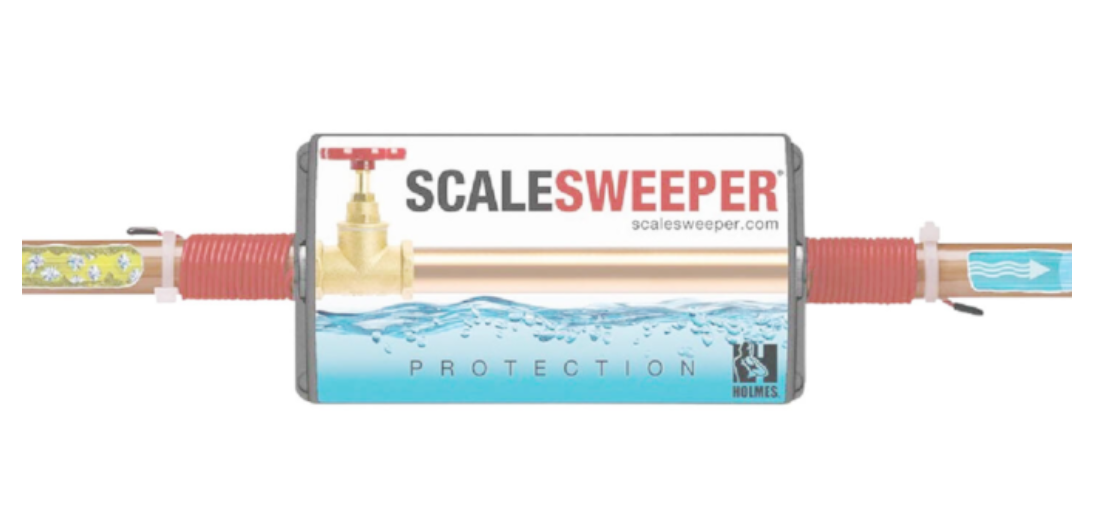
5. Other physical or chemical processes that alter the structure or behavior of hardness minerals.
Key Features of Salt-Free Water Conditioners
Scale Prevention: They prevent the formation of scale by changing the physical
properties of hardness minerals, ensuring these minerals don't
stick to surfaces.
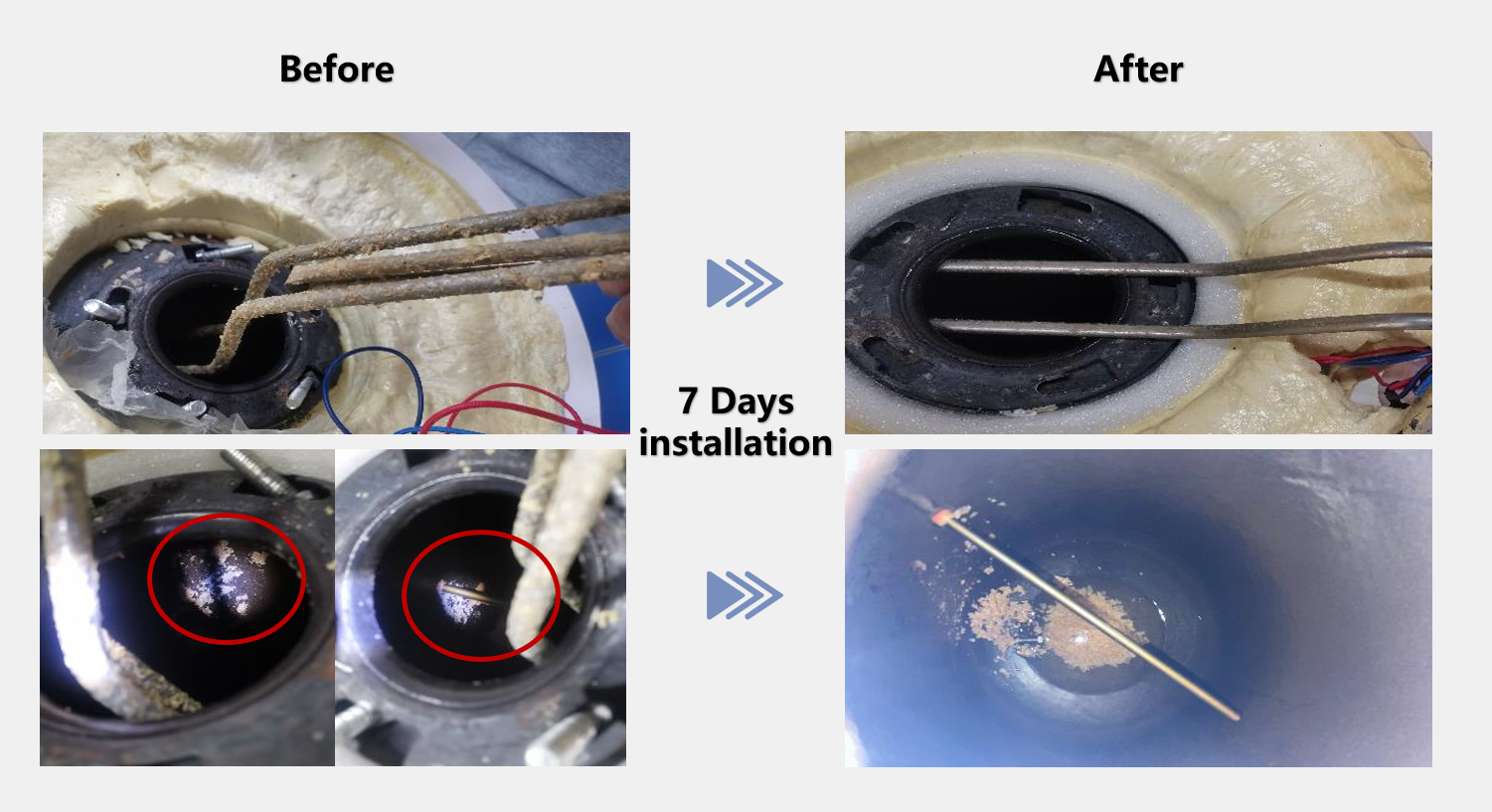
Anti-Rust: Upon polarization, the dipoles and the exposed metal surface will undergo a wall effect, resulting in the deposition of a layer of scaling ion complexes on the metal surface of the pipe wall (with a thickness of about 500μm). This layer of complexes isolates the metal of the pipe wall from the fluid system, serving to some extent as a corrosion barrier for the pipe wall.
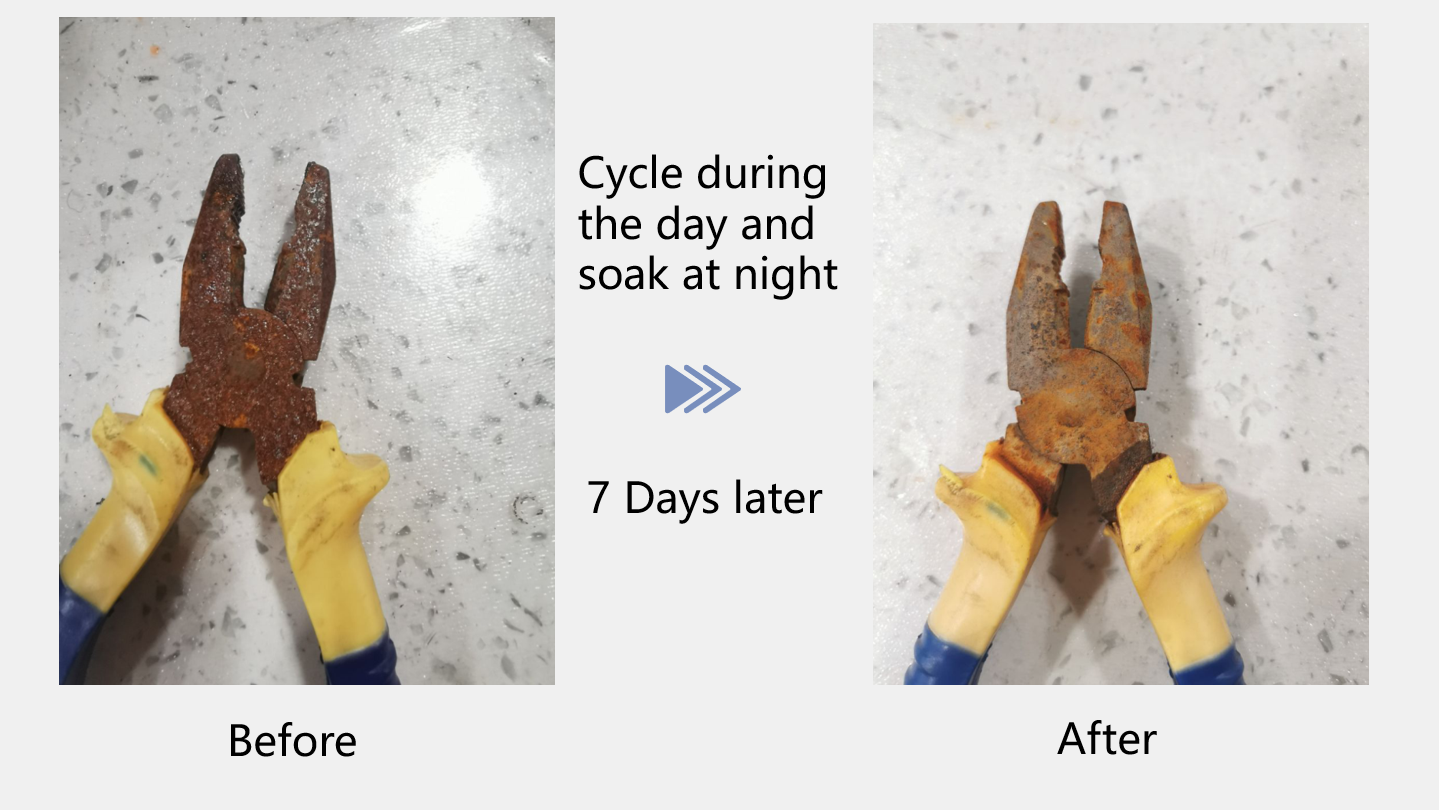
No Sodium Addition: Unlike traditional softeners, they don't add sodium to the water,
making the treated water more suitable for people on low-sodium
diets and for irrigation purposes.
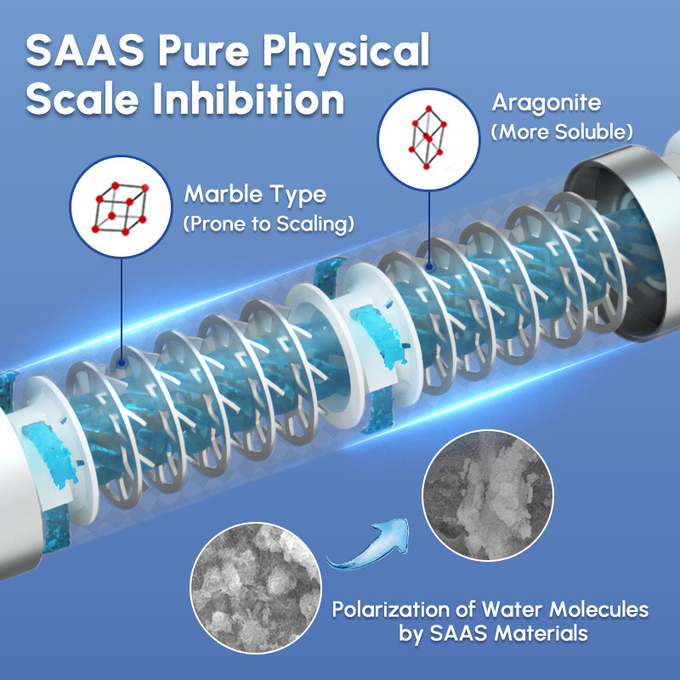
Eco-friendly: These systems do not produce wastewater or use chemicals, making
them more environmentally sustainable than traditional softening
methods.

Maintenance-Free: Salt-free conditioners often require minimal maintenance, as there's no need to regularly replenish salt or other chemicals. For BriskSpring's salt-free water conditioner, just install it on the plumbing system or the device attacked by hard water, you can let the water pass through it for 10 years and no need of washing or back-washing.
Retains Beneficial Minerals: The process keeps beneficial minerals in the water, maintaining
its natural health benefits.
Efficient Water Use: They don't require backwash water, leading to more efficient water
use and conservation.

Specification and Structure of BriskSpring salt-free water conditioner
| Product Size | 30x10x10CM (Package) |
| Gross Weight | 1.5 Kgs |
| Installation | Suitable for most plumbing systems |
| Usage | Briskspring water softener only not solves the hard water problem, but also demolishes the scale accumulated in the equipment, or pipeline and degerming |
| Flow Rate | 6 T/ H (26.4 GPM) |
| Color | Stainless Steel Silver |
| Fitting Material | 59-1 Brass, lead-free |
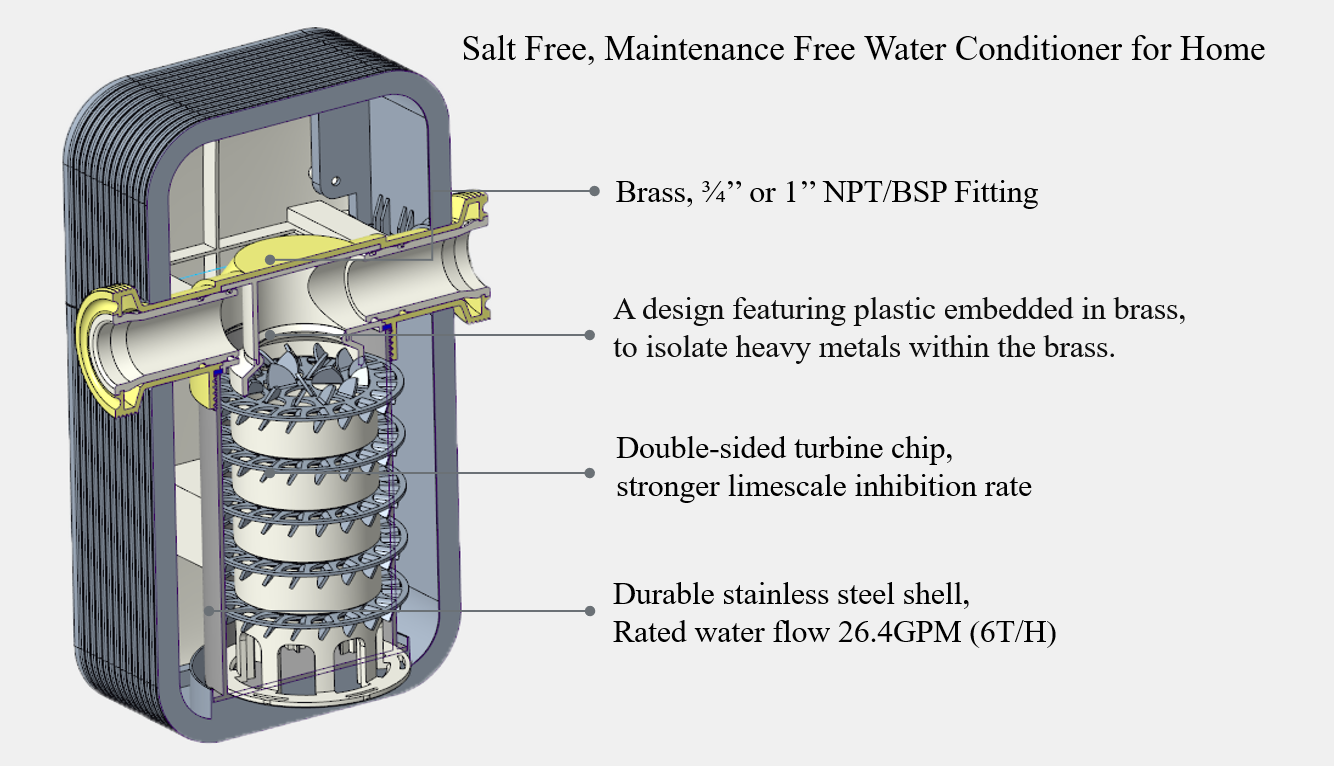
FAQ by our customers all over the world
Q1 : How does BriskSpring household water conditioner remove exhisted limescale?
A1: When water FULLY contacts the alloy material inside the water
softener, the physical characteristics of the water change.
The surface tension of the water decreases, and its permeability increases, allowing it to penetrate between the scale and the container walls. The existing scale gradually softens and slowly falls off.



Q2: Why does BriskSpring household water conditioner seem ineffective after use?
A2: The softening and detachment of scale is a process. Since it
does not rely on adding any chemicals to alter the water's chemical
properties, it typically takes 1-3 months to notice the effects after installation. Unlike salt-based water softeners, the effect of a salt-free
water softener is long-term (10-year lifespan), with scale gradually falling off under conditions of water flow greater than 2T/h.

Q3: How does it prevent the formation of new water limescale in the hard water?
A3: When water FULLY contacts the alloy material inside the water
softener, the physical characteristics of the water change.
The decrease in surface tension affects the nucleation and crystallization process of scale crystals, altering the morphology of scale crystals. The scale becomes easy to disperse and less likely to adhere. That is, calcium and magnesium ions are less likely to bind with carbonate ions, preventing new scale formation.
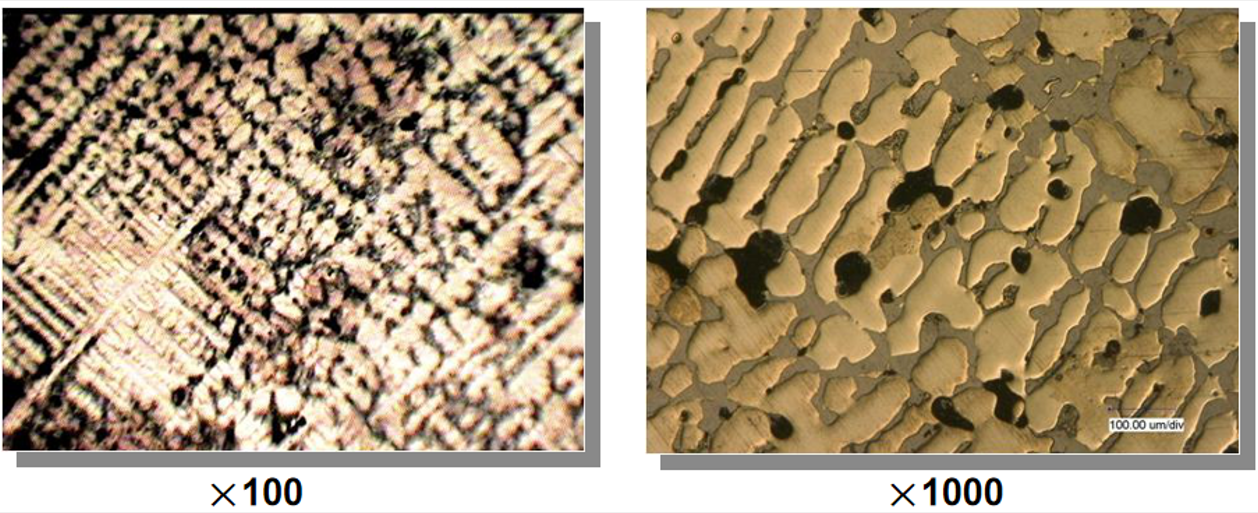

Q:4 If no new scale is formed, does the TDS value of the water change?
A4: The TDS value does not change, because no chemicals are added
to the water. The process uses alloy materials to alter the water's surface tension, making it a purely physical method of scale prevention and descaling. It is environmentally friendly and does not produce wastewater.
Q5: Are you a manufacturer?
A: Yes. We are a top manufacturer of water filtration system in china, and an industry leader and standard drafting units. For the water prefilters, we already developed over 12 generations of different types of washing modes for the filters.
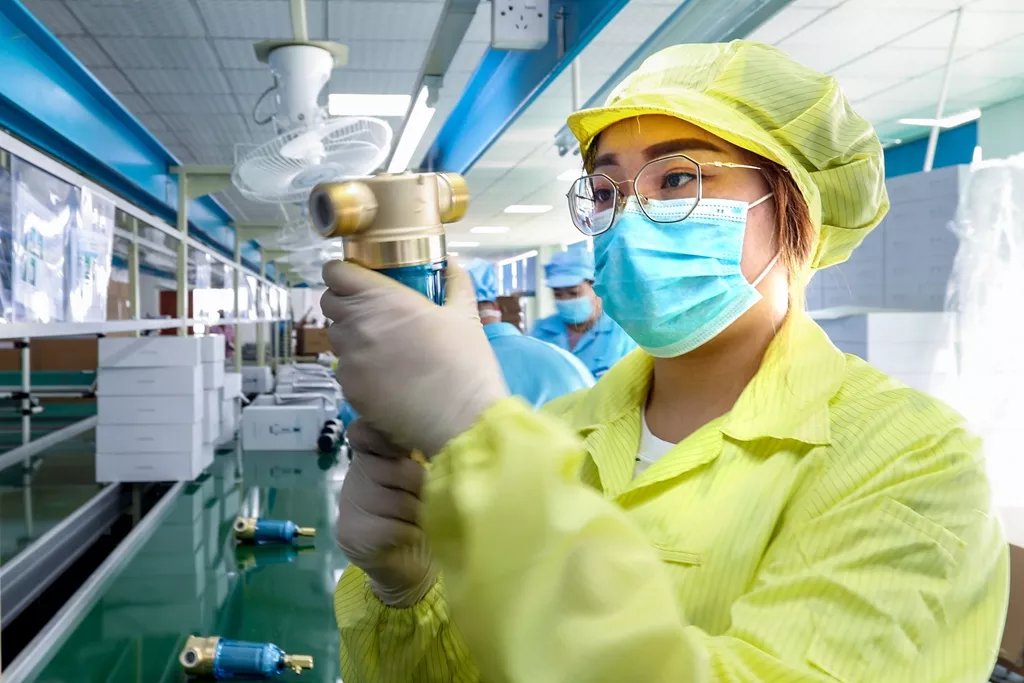

Here is the production of stainless steel shell of our water conditioner.
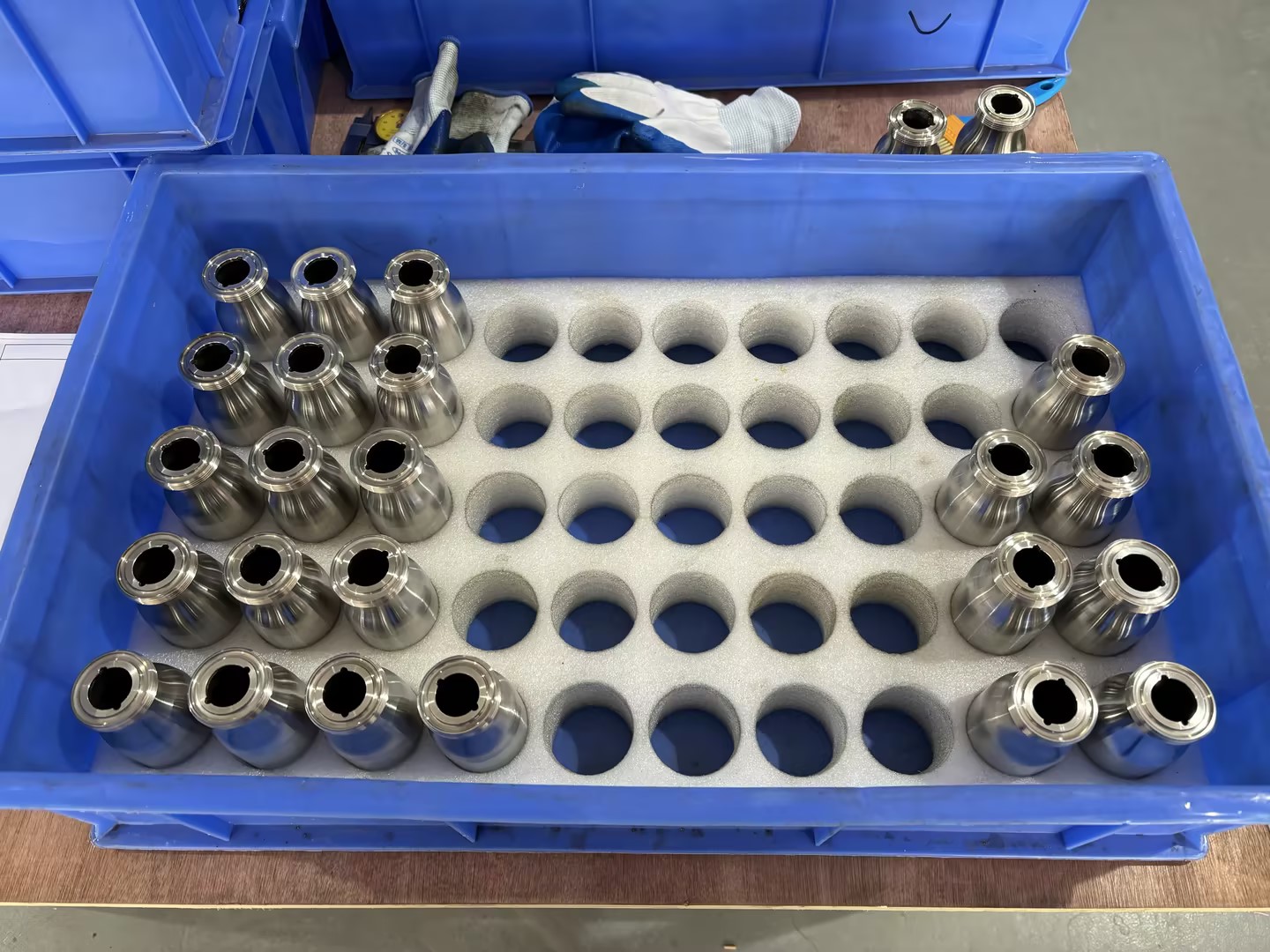
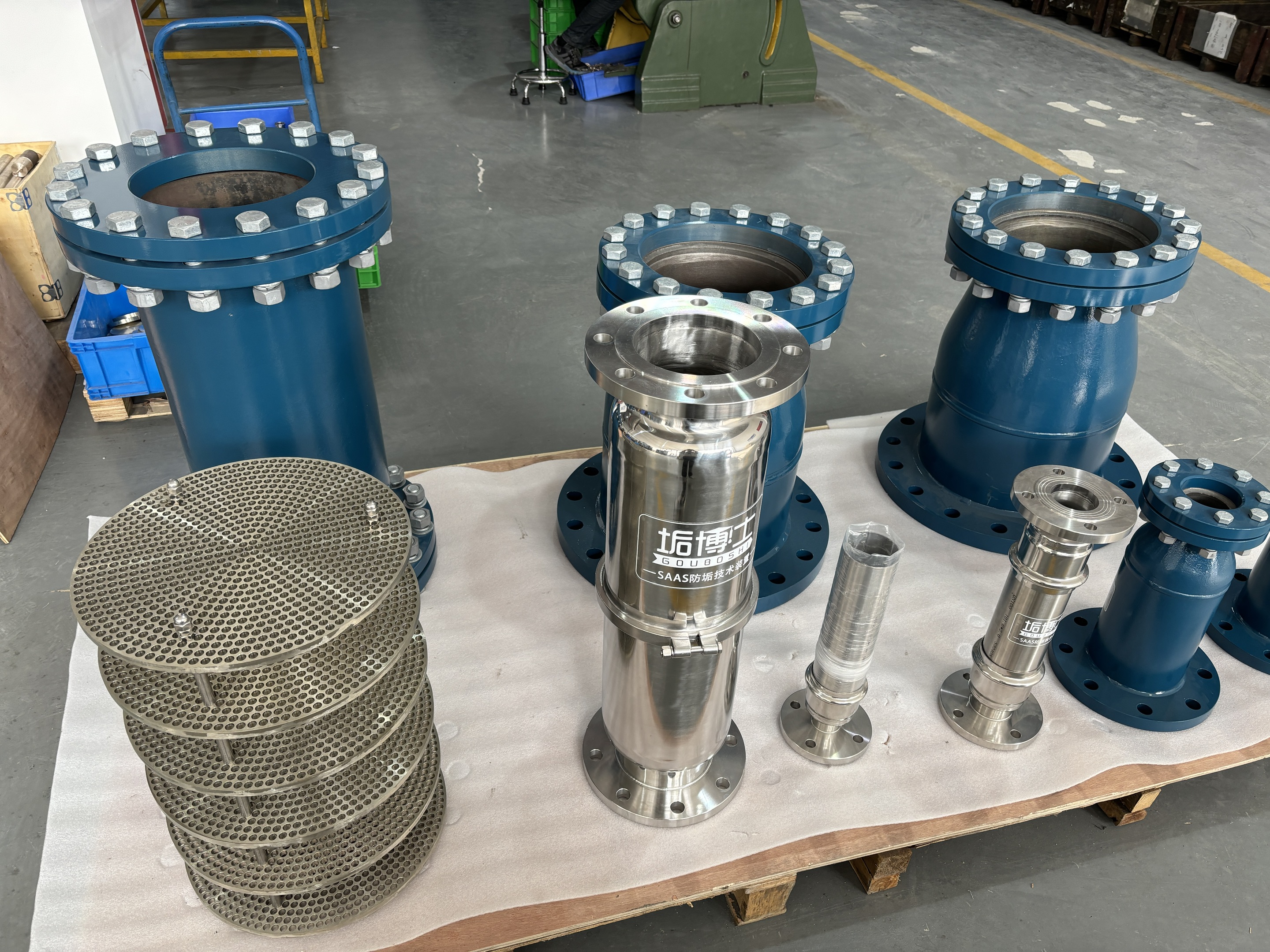
Here is our warehouse of well-packed products.

Q6: Can we use our logo/brand?
A6: Yes, we already do OEM and ODM with brands like Honeywell, Pentair, iSpring, and many other first-tier brands. We also have the capacity to design and customize instructions and posters for our customers, via coopearating with our Design Department.
Q7: How to contact you and get samples?
A7: Pls contact Rina (srt3@parshun.com, +86 138 0903 2358) to get samples of different models.

Q8: What's the order delivery time?
A8: Our capacity of production is 150000 units per month and the Lead time is according to the order quantity, order models, and packing. Generally, it takes about 7-25 days.
